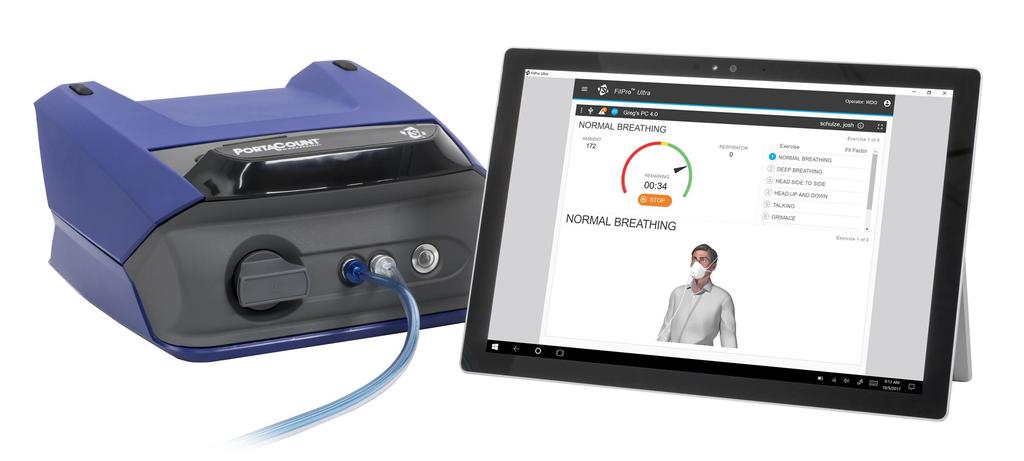
The Environmental Health and Safety (EHS) offices at St. George, UTM, and UTSC campus hosts respirator fit test sessions regularly throughout the year.
EHS only provides respirator fit testing for staff, faculty, and students who are conducting work or academic activities at or for the University of Toronto. This includes students who require a fit test for off-campus field research activities that fall under the University of Toronto. However, students who require a fit test for a placement program must contact their faculty or department to arrange for fit-testing with a third-party provider.
Fit testing is performed using a quantitative fit test method in accordance with the CSA Z94.4 standard. Participants who successfully pass their fit test will be provided with a wallet-sized certificate card indicating the respirator they were successfully fitted with (i.e., brand/model/size).
Fit test session duration: approx. 20-30 minutes.
If you have any questions regarding respirator fit testing, contact EHS at ehs.office@utoronto.ca.
Updated: February 17, 2026
About Respirator Fit Testing
Who is required to undergo respirator fit testing?
All University of Toronto students, staff, and faculty who are required to wear a tight-fitting respirator as part of their job duties or research work must be fit tested to ensure the user’s ability to obtain an effective seal and comfortable fit on the respirator. The training is designed to meet the University’s obligations under the University’s Respiratory Protection Program.
Important: Students who require a respirator fit test for a placement at an off-campus location (e.g., hospital) or undergraduate dental students who need a respirator fit test for clinical work must arrange for their fit test with a 3rd party vendor through their faculty or department. Speak to your faculty/department contact.
When should respirator fit testing be done?
Individuals must complete the online training and respirator fit testing prior to initial use of a tight-fitting respirator. Upon successfully completing a fit test, the individual must wear the specific make, model, and size of respirator they were fitted on for their work. Individuals who continue to require the use of a respirator must retake the online training and complete another fit test every two years or when the make/model of the respirator changes.
Respirators Requiring Fit Testing
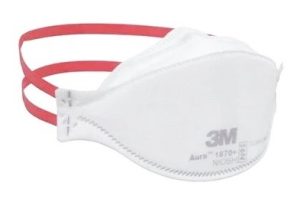 |
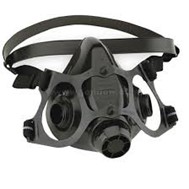 |
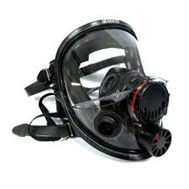 |
| Disposable N95s | Elastomeric Half-Face Respirator | Elastomeric Full-Face Respirator |
How to Sign Up for Respirator Fit Testing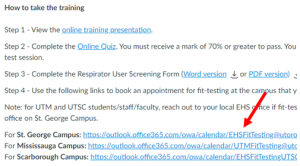
- Register for: EHS532 Respiratory Protection Training (Quercus). You will need a UTORid to register for the online course.
- View the online training presentation and pass the quiz with a minimum grade of 70%.
- Complete a Respirator User Screening Form (Word version or PDF version). Bring the completed form to your fit test appointment.
- Schedule a respirator fit test with your local EHS office using the links provided on the EHS532 course homepage.
Preparing for your Respirator Fit Test
- Individuals must be clean-shaven where the respirator is in contact with the face in order to be fit tested. For illustrations of acceptable and unacceptable facial hairstyles, refer to the following TSI document: Facial Hair Guidelines for Fit Testing
- Avoid smoking, vaping, chewing gum, eating or drinking (except water) within 30 minutes of your fit test.
- Individuals should present themselves for fit testing in the same personal condition they expect to be in when using the respirator, including any personal protective equipment (PPE) and personal effects/accessories. This includes hearing, face/eye, and head protection, hair styles (e.g., ponytails), head coverings, and wearing of dentures/braces/aligners (e.g., Invisalign), prescription glasses, or contact lenses.
- N95 Respirators: For participants who wish to be fitted for N95 respirators, please bring any NIOSH-approved or CSA-certified models available to you to the fit test. If not available, the fit tester will fit you on an available default model which can be purchased from the UofT MedStore afterwards.
To confirm if an N95 respirator is NIOSH-approved, look for the TC approval code (e.g., “TC-84-XXXX”) on the respirator or packaging. To confirm if an N95 respirator is CSA-certified, look for the CSA designation code (e.g., “CA-N95F-100Pa” or similar) on the respirator or packaging.
- Half- and Full-Face Elastomeric Respirators: Participants who have a 3M or Honeywell North brand elastomeric respirator (half-face or full-face) should bring their existing respirator to the fit test. If you do not already have one, the fit tester will fit you on an available Honeywell North model, which can be purchased from the UofT MedStore or uSOURCE afterwards.
Fit Test Centre Locations
UofT students/staff/faculty should book an appointment for fit-testing at the campus that they attend. UTM and UTSC students/staff/faculty who are attending research- or work-related training on St. George Campus may be eligible to attend a fit test session at the EHS office on St. George Campus. Contact your local EHS office for further information.
| St. George Campus Environmental Health and Safety 215 Huron Street, 7th Floor Toronto, ON |
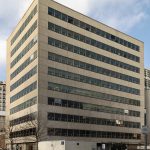 Map View |
| UTM Environmental Health and Safety 1535 Outer Circle Maanjiwe nendamowinan (MN) Building, Rm 2220 Mississauga, ON |
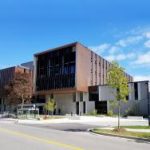 Map View |
|
UTSC |
 Map View |
Other Options?
If there are logistical issues preventing you from attending a respirator fit test session on campus, you can arrange for your own fit test with a 3rd-party provider (Note: this service is not reimbursable by EHS). It is recommended that you choose a vendor that provides quantitative fit testing. After successful completion of the fit test, you must submit a copy of your fit test certificate to EHS. EHS will then update your training record on Sprout.
Additional Information
Placements
Placement locations are responsible for providing training on hazards and procedures that are required at the placement site, including arranging for respirator fit testing. If the placement site is unable to provide fit testing, you may need to arrange your own fit test through a 3rd-party provider. For assistance with locating an external vendor, please contact EHS. Note: EHS does not reimburse costs associated with fit tests conducted by external providers.
KN95 Respirators
Although Health Canada has authorized the use of some KN95 respirators for use related to COVID-19, KN95 respirators are not NIOSH-approved or CSA-certified. EHS will not be able to fit test participants on any KN95 models.
Loose-fitting Facepiece Respirators
Respirator users who intend to wear only loose-fitting facepiece respirators (e.g., PAPRs with hoods/headcovers) that do not require a fit test must still complete the online EHS532 Respiratory Protection Training course on Quercus and submit a completed Respirator User Screening Form to EHS (see step 4 above). Otherwise, your training record will not be updated.
EHS can provide technical advice and recommendations on PAPR equipment but does not provide equipment-specific training. It is the responsibility of the respirator user to perform maintenance and inspections of the units purchased by their department following manufacturer’s instructions. Users should follow any manufacturer- or vendor-specified refresher frequency for equipment-specific training.
Particulate Filters and Chemical Cartridges for Elastomeric Respirators
After completing the fit test on an elastomeric half-face or full-face respirator, the user must work with their supervisor or Principal Investigator to select and purchase the appropriate particulate filter and/or chemical cartridge. The selection should be compatible with the brand/model of the respirator and the specific respiratory hazard.
The following reference guides are available to assist in selection:
![]() Honeywell North Cartridge & Filter Reference Chart
Honeywell North Cartridge & Filter Reference Chart
![]() 3M Cartridge & Filter Selection Guide
3M Cartridge & Filter Selection Guide
Accommodations
Certain respirator users may be unable to undergo a fit test on a tight-fitting facepiece respirator due to the need to maintain their facial hair for religious reasons (e.g., beard) or other medical reasons. These users may be eligible to wear loose-fitting facepiece respirators (e.g., hooded PAPRs) which do not require a respirator fit test.
EHS is not involved in approving requests for accommodations (religious or medical) or purchasing of PAPRs. For inquiries about an accommodation, refer to the following departments:
- Student Accommodations: The student should contact the Office of the Vice Provost, Students regarding their accommodation request for respirator use by e-mail: Office of the Vice-Provost, Students (ovps@utoronto.ca).
- Staff Accommodations: The employees’ department should contact Health and Well-Being Programs and Services (hwb@utoronto.ca).







